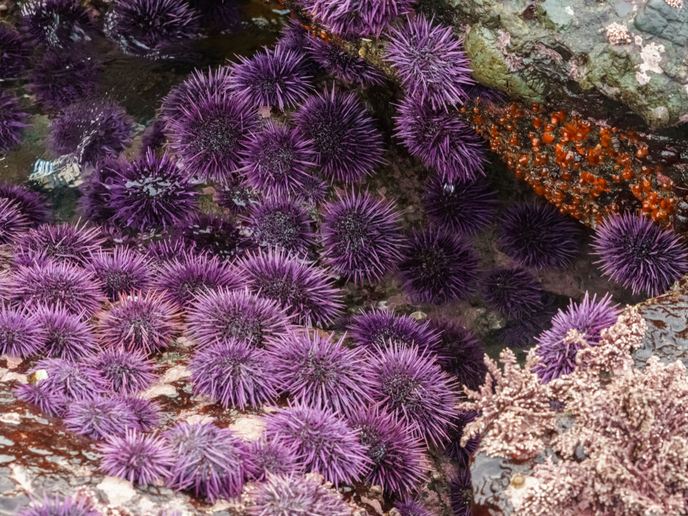Sea urchins reveal how organisms respond to a changing marine environment
The world’s oceans are changing faster than at any other time over the last 300 million years. As a result, marine animals are being exposed to multiple rapid environmental changes. At the same time, seasonal and daily variability in environmental conditions such as temperature and ocean acidification is increasing. The EU-funded TERMS-Ocean project addressed these challenges by studying transgenerational plasticity (TGP), a possible mechanism that marine organisms can use to cope with changing environmental conditions. This research was undertaken with the support of the Marie Skłodowska-Curie programme. TGP is where observable characteristics (such as size) in offspring change in response to the environment that their parents were exposed to during reproduction. “Offspring displaying TGP are better able to cope with the conditions their parents were exposed to than they would have been if their parents had not experienced those conditions,” says research fellow Kathryn Smith.
Present and future compared
The initiative investigated the role of TGP in the response of a keystone marine invertebrate, the sea urchin Paracentrotus lividus, to the combined impacts of climate change and ocean acidification. The aim was to determine whether TGP plays a role in alleviating the effects of these stressors when experienced in combination. Although scientists often examine a variable, like temperature, in isolation, it does not reflect reality, where many different variables are changing at the same time. “TERMS-Ocean therefore looked at how P. lividus responded to current temperature and ocean acidification levels using variable readings to mimic changes that are observed across a tidal cycle. Both were then restudied using the temperature and ocean acidification levels predicted to occur in oceans in 2110,” Smith explains.
Effect of multiple stressors
Researchers observed that egg sizes in females were influenced by temperature and ocean acidification and also by environmental variability (i.e. the variability observed across a tidal cycle, which was incorporated into experimental regimes). In contrast, the way that sperm swam was only influenced by environmental variability. Fertilisation success did not vary across different experimental regimes, but within each experimental set-up there was a huge amount of individual variability between the proportion of eggs from different females that were fertilised. Larval survival and larval development were influenced by temperature and ocean acidification, and also by environmental variability. The most exciting finding from TERMS-Ocean is the importance of individual variability in the responses of organisms to environmental change. “Results suggested that when looking at the responses at an individual level rather than a population, it becomes clear that not all individuals are impacted by environmental change in the same way. While some individuals are negatively affected by environmental change, others thrive under predicted future ocean conditions,” notes Smith. TERMS-Ocean will lead to advances in our understanding of the impacts of climate change (temperature and acidification) on marine species. “These findings will benefit fisheries, which can explore the potential for targeting specific individual genetic lines that may provide higher yields in the future. They will also inform policy-makers as well as being of interest to the scientific community and the general public,” Smith points out.
Keywords
TERMS-Ocean, ocean, temperature, acidification, environmental change, ocean acidification, climate change, environmental variability, transgenerational plasticity (TGP), Paracentrotus lividus

